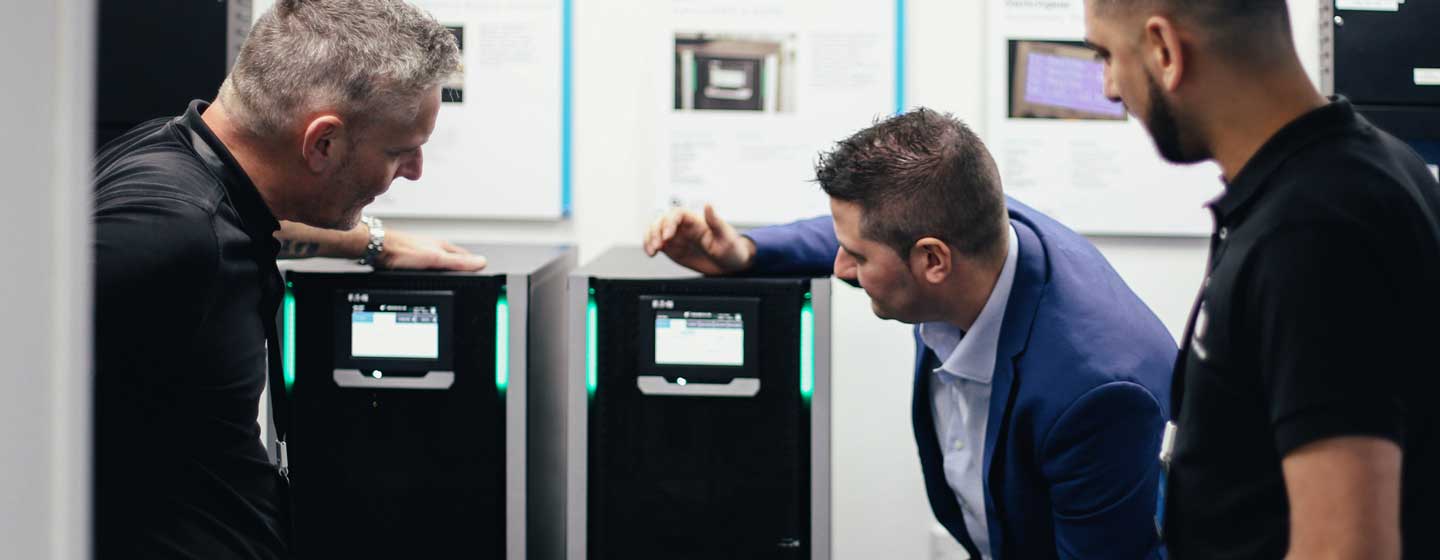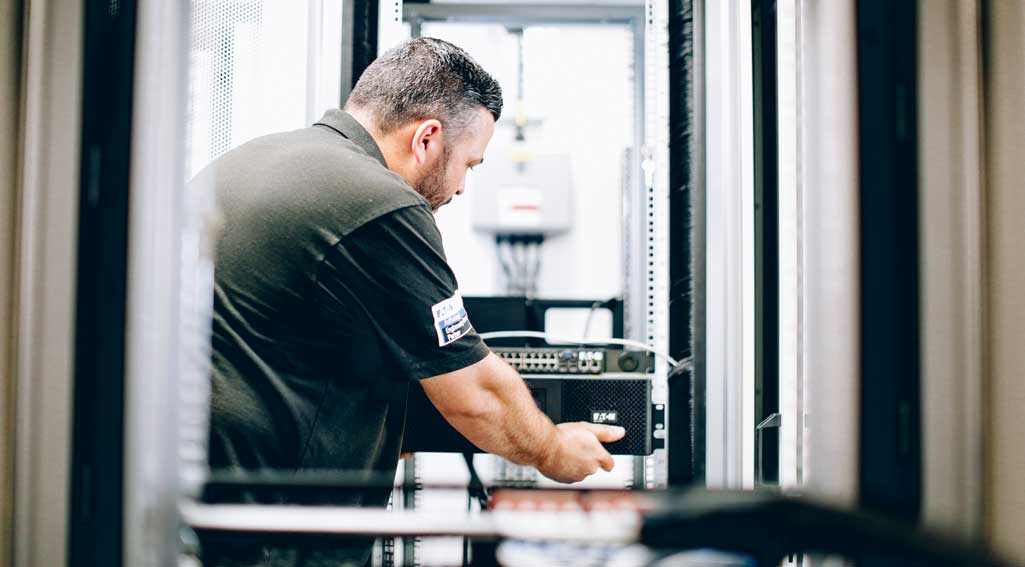- Homepage
- /
- Uncategorized
- /
- 6 Benefits of Modular UPS Systems
- Homepage
- /
- Uncategorized
- /
- 6 Benefits of Modular UPS Systems
- Homepage
- /
- Uncategorized
- /
- 6 Benefits of Modular UPS Systems
6 Benefits of Modular UPS Systems

Modular uninterruptible power supply (UPS) systems are increasingly popular among businesses who need a reliable source of power for their critical infrastructure. By sharing the responsibility for power protection across different modules, you increase reliability – but that’s just the start.
If you’re planning on upgrading your existing UPS or just interested in the available options, here are six reasons why you should consider going modular.
What is a modular UPS system?
A modular UPS system is built from a combination of individual modules that are linked and work together. Each UPS module has everything it needs to function, including a rectifier, inverter, battery converter, a static bypass switch and back-feed protection.
Modular UPS systems are housed in racks, stacked alongside and on top of one another. They’re one of the fastest-growing sectors in the market. The world’s leading UPS manufacturers Eaton, Riello and APC all offer exceptional quality modular UPS systems that can be configured around your requirements.
Whether you’re looking for a new UPS for your data centre, comms room, or server room, a modular system could be an essential upgrade.
Benefit #1. Risk Spreading
In environments where reliability is critical, a single, monolithic UPS can itself also be considered a single point of failure. Modular UPS systems spread the risk by removing single points of failure, and instead spreading the risk. A modular UPS is built from individual components that work together. If one part fails, it can be removed and replaced without affecting the entire system.
In most cases, you can replace the broken module while the system is still live. The process should take less than an hour.
Benefit #2. Redundancy package
If the UPS is called into action and a module fails, then the redundant module in the rack can take up the power requirements.
Unlike standalone UPS systems, redundant power protection doesn’t need to be built into the entire system. If an early warning system is in place, one or two modules can be classed as redundant to compensate for the failure of another module.
Instead of the system failing, the faulty power module can be removed and replaced. The only impact is a reduction in back-up time, but with an adequate warning system in place, this can be dealt with quickly.
Such N+1 redundancy is at the heart of a modular system and is one of its critical benefits over traditional stand alone UPS systems.
Benefit #3. Easier to service
Modular systems are simpler and easier to maintain. Modules are hot-swappable, which means they can be removed, replaced and tested all while the system is running. Performed correctly, a faulty module hot-swap won’t affect the performance and protection provided by the UPS.
Simpler servicing means lower ongoing costs, but it’s more than that. There’s no need to shut the system down, which means servicing and maintenance can take place during working hours (so no weeknights or weekends away from the family).
At Carter Sullivan, we provide a comprehensive range of UPS servicing packages designed for you and your business. Our managed service will give you complete confidence in your power infrastructure.

Benefit #4. Built for growth
By taking a modular approach, you’re building in the potential to add extra capacity. If your power requirements increase, you can add additional modules to your UPS.
The scalability of a modular UPS system is one of its greatest strengths. You can add capacity when it’s needed, without needing to find extra floor space or invest in cabling.
There are some limits on how far scalable UPS systems can be upgraded, including the physical rack space available, but if your business is growing, a modular UPS can grow with you.
Benefit #5. Smaller footprint
Scalable UPS solutions are designed for the modern world. Housed in racks, they have a much smaller footprint than a stand alone UPS or parallel system.
By building up not out, you’re minimising the space requirements, which is a significant benefit for businesses of all sizes. You’ll benefit from the scalable compact design, leaving free space in your premises for other essential equipment.
Benefit #6. Cost savings
The bottom line for most businesses is money, and modular systems deliver a lower cost of ownership. Modern modular UPS systems allow the user to take charge of the system, turning off or “hibernating” modules if the load is lower than expected. This reduces overall energy consumption and ensures that individual modules are operating at maximum efficiency.
As we’ve already seen, modular systems are cheaper to upgrade than the cost of replacing a standalone unit. While initial deployment costs can be higher, in the long-run, the savings can be significant. We design typical UPS installations for ten years, during which time savings can add up.
Choosing the right UPS for you
At Carter Sullivan, we can work with you to find the most cost-effective solution to your crucial power requirements. It all starts with an on-site survey where one of our trained technicians will listen to you and learn about your business, your challenges and your requirements. Together we can design scalable UPS systems for data centers and critical power systems that provide the protection you need at a cost you can afford.




